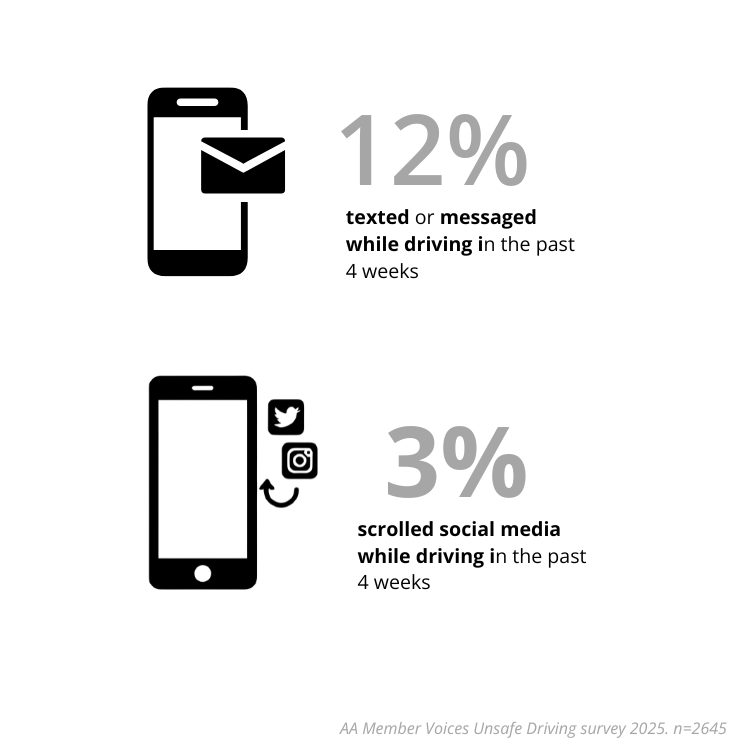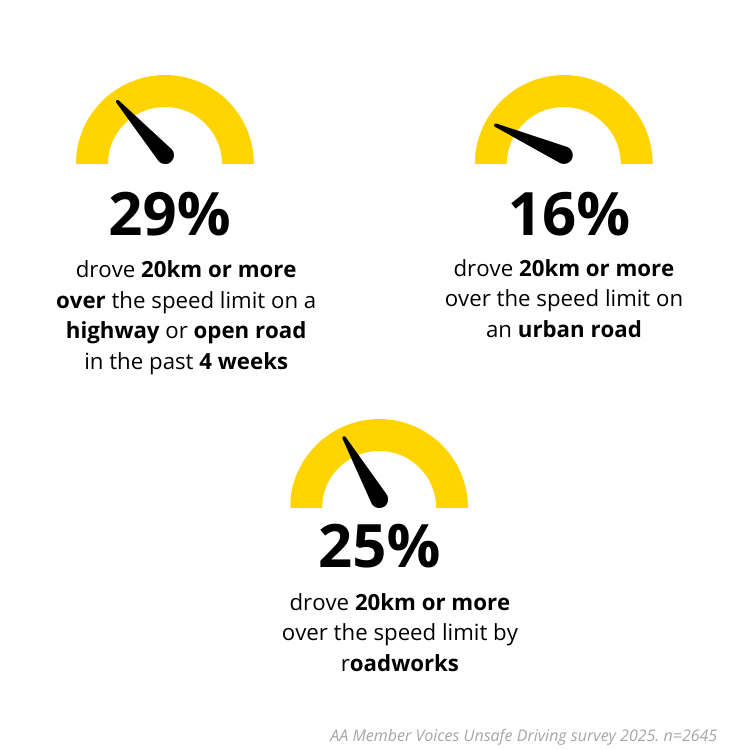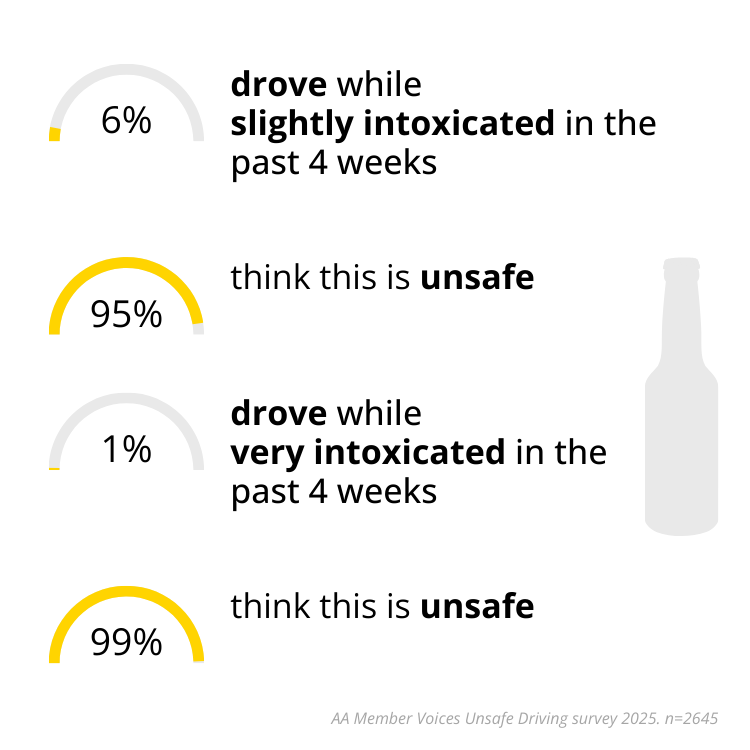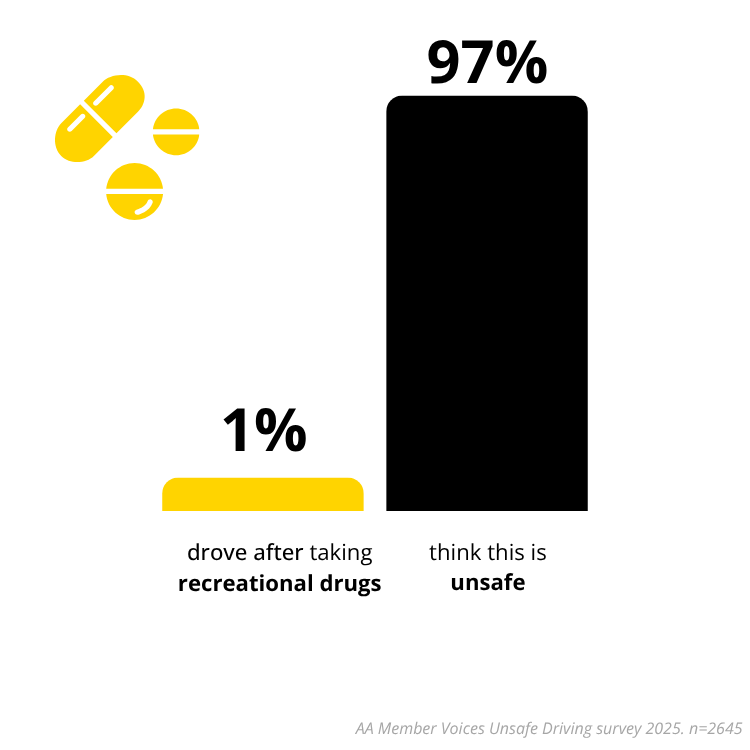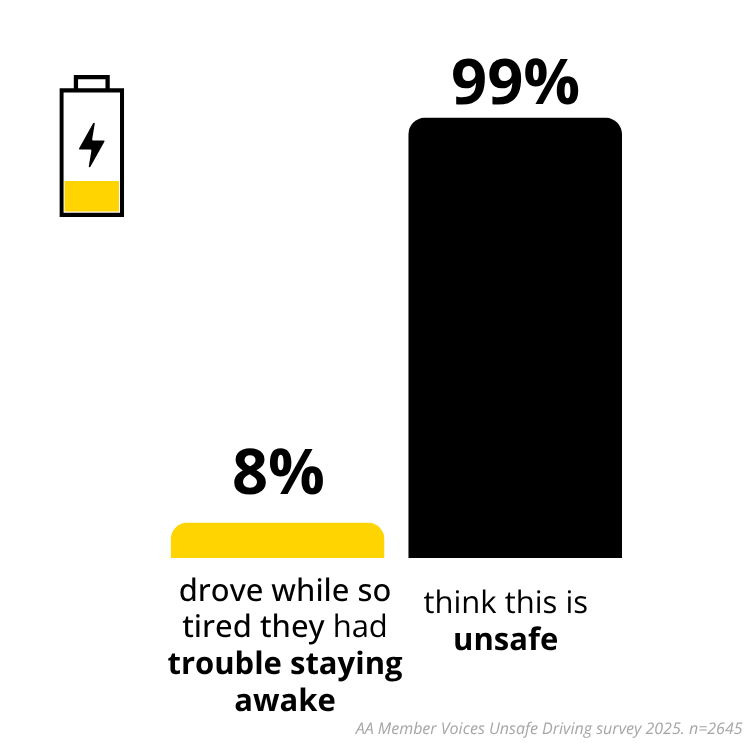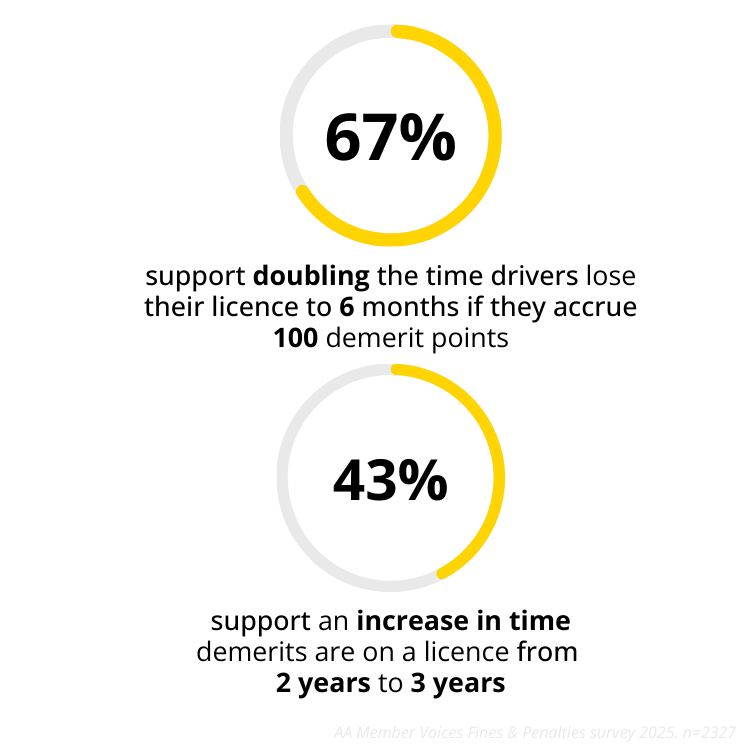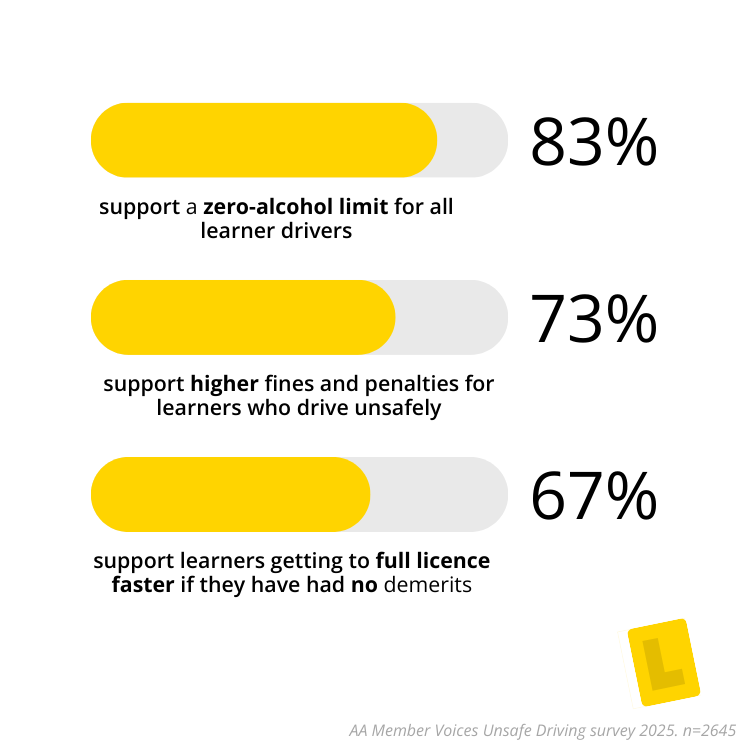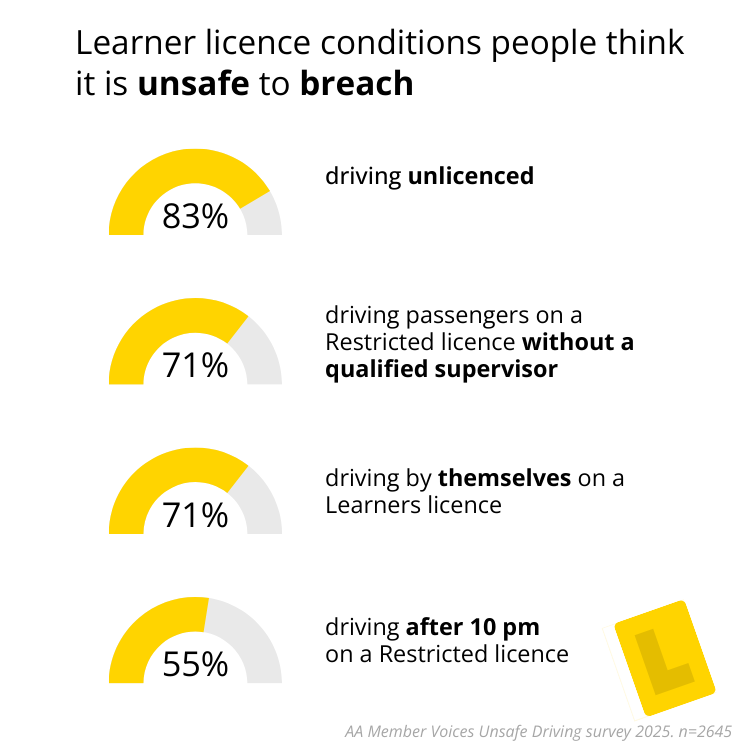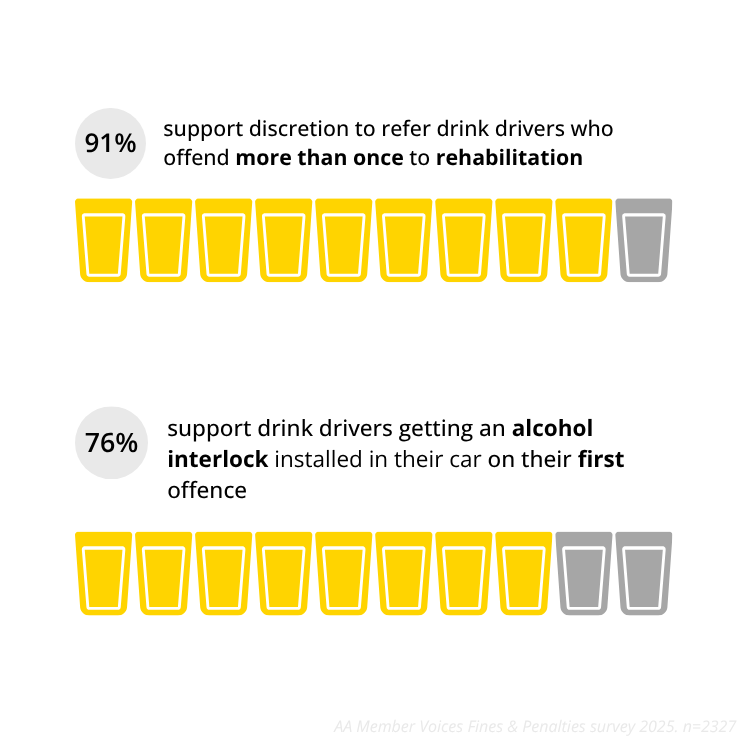Fines are not discouraging unsafe driving
Less than half of AA Members believe current fines are discouraging unsafe driving; mobile phone fines ($150) are seen as particularly ineffective.
Many AA Members feel fines are too low, especially for wealthier drivers who can easily afford them.
We also found that more than half of AA Members couldn't accurately identify the cost of fines.
Demerits and enforcement are considered more effective
Demerits and Police enforcement are seen as stronger deterrents than fines. 9 out of 10 AA Members believe the threat of losing a licence prevents unsafe driving. Members also support increasing demerit penalties and expanding their use.
Safety cameras are seen as effective, but their use should be expanded to other road user behaviour
We found that 3 out of 5 think permanent, signposted safety cameras discourage unsafe driving. Half of AA Members think temporary safety cameras are effective. Members want cameras to target a broader range of unsafe behaviours, such as mobile phone use, and not wearing seatbelts.
Warrant of Fitness enforcement is not seen as effective
WoF-related fines are seen as less effective, partly due to low enforcement and rural disparities.
Many AA Members raised that they would prefer a more safety-focused approach for vehicle maintenance issues rather than punitive measures.
Unsafe driving is common, despite AA Members recognising it is unsafe.
We found that speeding is especially common, even at speeds over 25km the limit. There were also relatively high rates of distracted driving - over a third had used a mobile phone while driving in the past four weeks. Of particular concern was that nearly 1 in 10 drove while so tired they had trouble staying awake.
There is strong support for strengthening fines and penalties
Nearly 9 out of 10 AA Members support increased penalties for repeat offenders.
Over 8 out of 10 support interlocks for first-time drink drivers. Nearly 7 out of 10 support longer licence suspensions for high demerit point accumulation.
There needs to be discretion for those on low or no income to have alternative penalties
Nearly 7 out of 10 AA Members support alternative penalties (e.g., demerits, education) for low-income drivers. Members are concerned that fines disproportionately impact poorer drivers and may lead to further hardship or non-compliance.
Strengthened fines and penalties for learner drivers could build safer driving habits
Over 8 of 10 support higher fines and a zero-alcohol limit for learner drivers, and nearly 7 out of 10 support faster licence progression for those with no demerits.
Infographic summary of Fines and Penalties Survey 2025 results







